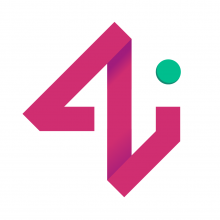
There are 4 Companies in Taiwan
that provide Angular Development Services!
Despite its relatively small population of 23.11 million citizens, Taiwan continues to strengthen its position as a technological powerhouse. Since the 1980s, Taiwan has taken a proactive approach to the development of emerging technologies. And while this history of manufacturing prowess still accurately defines the island, an economic revolution is underway.
Discover Top IT Companies in Taiwan specialized in Angular and other related services. Find the best IT service providers for your projects.
Angular (formerly AngularJS) is a popular open-source web application framework maintained by Google and a community of developers. It's used for building dynamic, single-page web applications (SPAs) and web-based applications in general. Angular provides a structured and organized way to create complex web applications by extending HTML with additional features and enabling the development of interactive, responsive, and maintainable front-end web interfaces.
Handpicked companies • No obligation to hire • 100% risk-free
Explore Top Angular Development Companies in Taiwan

New Taipei City, Taiwan Head office in: United States
Access the Top 1% Tech Talent | 1500+ In-House Developers | Trusted by Fortune 500 Companies
A leading custom software outsourcing provider based in Taipei.
Grow your Business. Higher, Faster, Smarter.
Services:
Creative design studio founded in Taiwan. We emphasizes building the right image to take company’s international competitiveness to the next level.
Services:
Filter Angular Development Companies in Taiwan by Cities
Find the right tech company near you or from a specific city. Some of the best companies might be located in smaller cities.
Find more Angular Development companies around the world
TechBehemoths is the world's most advanced and user-friendly platform to match IT Companies with real clients without hustle.
The IT Industry in Taiwan: Software Agencies and Companies Information
Despite its relatively small population of 23.11 million citizens in 2025, Taiwan continues to strengthen its position as a technological powerhouse. Since the 1980s, Taiwan has taken a proactive approach to the development of emerging technologies. And while this history of manufacturing prowess still accurately defines the island, an economic revolution is underway.
According to a World Economic Forum report, Taiwan is in the midst of an innovation-driven economy. These findings are unsurprising given its position as a future-thinking hub of technology and engineering.
Hints of this high-tech excellence are prevalent throughout the Taiwanese economy. According to Statista, in 2023, it was ranked first with an average download speed of 153.51 Mbps, but in 2025, it dropped to 17th place. Further reflecting its robust manufacturing industry, the country produces 70 percent of the world's integrated circuits and 90 percent of laptops sold around the globe.
Why Should You Work With a Taiwanese IT Company?
Companies like Microsoft continue to invest heavily in Taiwan’s IoT industry. Taiwan’s ample supply of engineering talents and reasonable wages make it a desirable tech hub. In response to this growth, the government’s Asia Silicon Valley Development Agency (ASVDA) endeavors to raise Taiwan's global market share in IoT from 3.8 percent in 2015 to 4.2 percent by 2020 and 5 percent by 2025.
In addition to that, local companies continue to provide digital services such as software development, digital design, and cybersecurity, among others, especially for foreign companies. Why do international customers choose to work with Taiwanese IT companies?! It’s simple - in the region, is really tough to find better options as price/quality offers.
What to Be Aware of When Working With Taiwanese IT Companies
Taking into consideration that the local IT industry performs above the regional average, Taiwan is a place where IT companies are extremely competitive, and their density is high. Probably higher than you might get used to in the US or Europe. For this reason, a very important and required action for customers is to pay attention to companies’ specifications, which may be the decisive factor for the result of the project.
How Does the Taiwanese IT Industry Relate to the Neighboring Countries?
According to the Organization for Economic Development, Taiwan has a 98.5 percent literacy rate and the fourth-highest standardized math test scores in the world. Further, over 25 percent of all university degrees are in engineering. As a result, many continue to see Taiwan as a desirable hub for further investment.
Compared to the neighboring countries, including China, Japan, and the Philippines, the digits are close when it comes to literacy; however, in terms of the number of engineers, Taiwan surpasses all its neighbors and has one of the highest chances to become the regional tech hub leader, at least in some branches of IT.
What is Angular and what are its benefits for your projects?
Angular (formerly AngularJS) is a popular open-source web application framework maintained by Google and a community of developers. It's used for building dynamic, single-page web applications (SPAs) and web-based applications in general. Angular provides a structured and organized way to create complex web applications by extending HTML with additional features and enabling the development of interactive, responsive, and maintainable front-end web interfaces. Here are some key aspects and concepts of Angular:
-
Component-Based Architecture
-
Templates
-
Directives
-
Dependency Injection
-
Services
-
Routing
-
Observable and RxJS
-
Modules
-
Testing
-
Cross-Platform
Angular's structured approach, strong tooling, and vibrant ecosystem of libraries and extensions make it a powerful framework for building modern web applications. It is particularly well-suited for large and complex projects where maintainability and scalability are crucial.
Companies may choose Angular over other front-end frameworks for their projects for a variety of reasons, depending on their specific needs and priorities.
-
Google Backing: Angular is developed and maintained by Google. This association often gives companies confidence in its long-term support, stability, and continuous improvement. Google's involvement is seen as a sign of reliability and commitment to the framework.
-
Mature and Established: Angular has been around for a while and has a strong track record of being used successfully in large-scale enterprise projects. It has a well-defined architecture and best practices, which can be beneficial for maintaining and scaling applications over time.
-
TypeScript Support: Angular is built with TypeScript, a statically-typed superset of JavaScript. TypeScript provides better tooling, code maintainability, and catches errors at compile time, which can reduce bugs and enhance code quality, making it attractive to companies that prioritize robust code.
-
Full-Featured Framework: Angular provides a comprehensive set of tools, libraries, and features out of the box, including routing, form handling, HTTP client, and more. This can save development time and effort compared to integrating multiple third-party libraries in other frameworks.
-
Two-Way Data Binding: Angular offers powerful two-way data binding, which allows for automatic synchronization between the data model and the view. This feature can make it easier to develop interactive and responsive user interfaces.
-
Large and Active Community: Angular has a large and active community of developers and a wealth of resources, including documentation, tutorials, and third-party libraries. This can be beneficial for finding solutions to common problems and getting support when needed.
-
Enterprise-Ready: Angular provides features like dependency injection, modularity through modules, and a strong emphasis on testability. These characteristics are well-suited for building robust and maintainable enterprise-level applications.
-
Strict Coding Standards: Angular enforces a set of coding standards and best practices, which can lead to more consistent and readable code. This can be important for companies with multiple developers working on the same codebase.
-
Cross-Platform Development: Angular can be used for building both web and mobile applications. Companies looking to develop applications for multiple platforms may choose Angular for its ability to share code between web and mobile apps using technologies like NativeScript or Ionic.
-
Integration with Backend Technologies: Angular can easily integrate with various backend technologies and APIs. This makes it suitable for projects where the front end needs to communicate with different types of server-side applications.
-
Security Features: Angular provides built-in security mechanisms to help prevent common web vulnerabilities like Cross-Site Scripting (XSS) and Cross-Site Request Forgery (CSRF). This can be crucial for projects with high security requirements.
-
Ecosystem and Tooling: Angular has a rich ecosystem of tools, extensions, and IDE support, including Angular CLI for project setup and management. This can streamline development workflows and improve productivity.
Ultimately, the choice of Angular or any other framework depends on the specific project requirements, the development team's expertise, and the company's long-term goals. Companies evaluate various factors to determine which framework aligns best with their needs, resources, and priorities.


